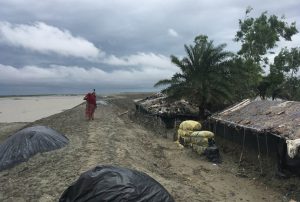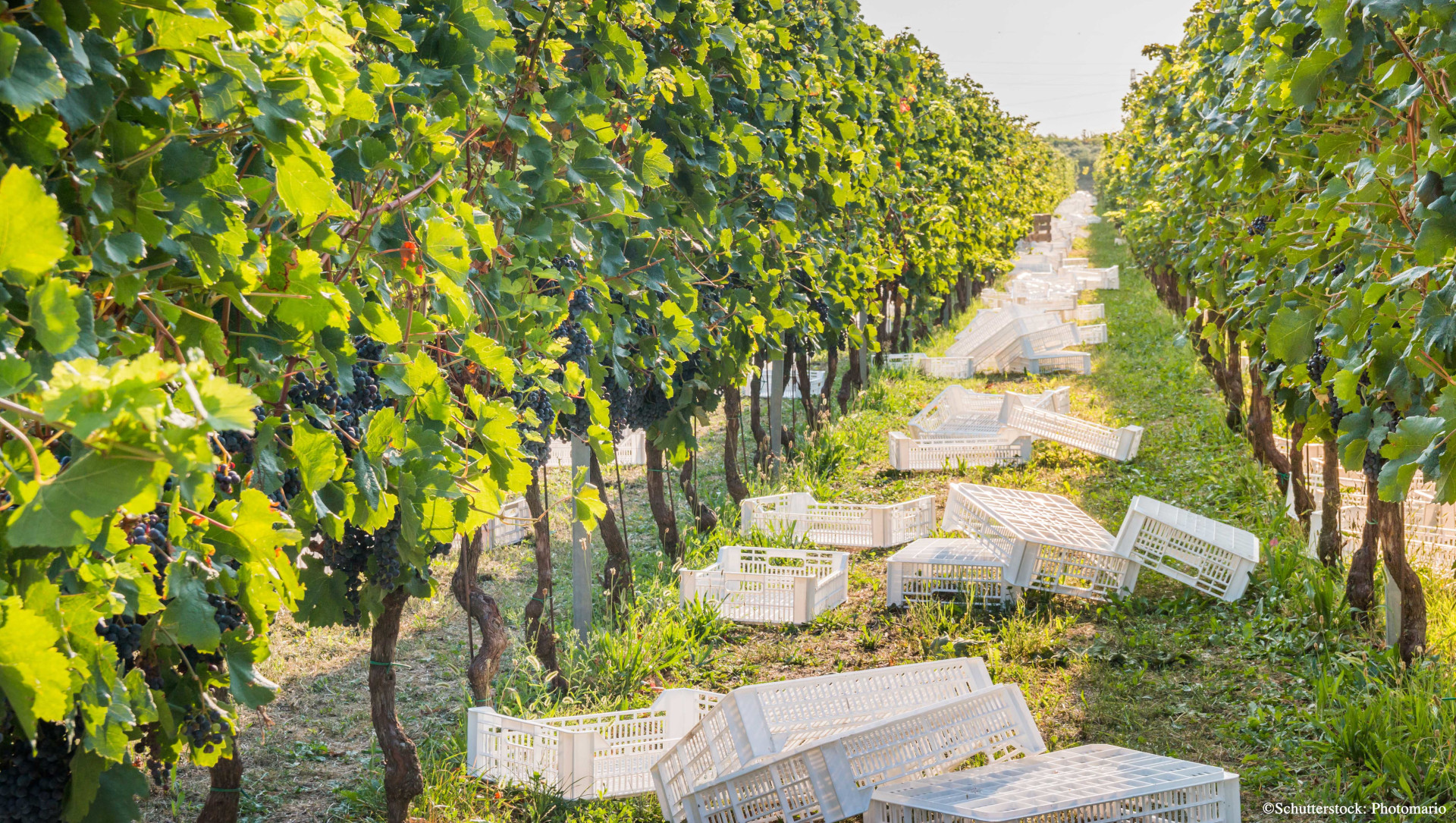
Read more
Blog, Mobility Practices and Processes
From Climate Migration to Climate Mobilities
The relation between climate change and human migration is often understood in relatively narrow terms. The predominant assumption is that climate change is causing millions of people to move: as people are impacted by...
In the major new report that we co-edited Are Agri-Food Workers Only Exploited in Southern Europe? we examine the working conditions in agri-food production in Germany, the Netherlands and Sweden. Drawing from the report’s findings, this Blog highlights that only structural interventions to ensure fairer labour standards can overhaul an agri-food system that takes advantage of the vulnerability of workers.
While close attention has been paid to both the conditions for and exploitation of migrant workers in agriculture and food production in Southern Europe, exploitation and systematic denial of the rights of workers – especially of migrant workers – also underpins the agri-food sector in Northern Europe. These dynamics have become more visible during the global pandemic. As in Southern Europe, demand for low-wage, flexible and exploitable migrant labour in the agri-food sector in Northern Europe is driven and fostered by an interplay between structural factors. The current pandemic could constitute a crucial opportunity to support agri-food systems that are more compliant with labour and migrants’ rights.
Migrant Labour Composition
Germany, the Netherlands and Sweden host some of the retail giants that play key roles in value chain dynamics and are also countries where recourse to migrant labour has become a structural element in the development of agri-food industries. This foreign workforce is composed of both EU and non-EU migrant nationals. While there is a presence of undocumented migrants, non-EU agricultural labourers tend mainly to be mobile seasonal workers, with a smaller presence of asylum seekers and beneficiaries of international protection.
While Sweden’s labour migration regime has been considered by the OECD as one of the “most open labour migration regimes”, non-EU (mainly Thai) seasonal workers are nonetheless frequently involved in substandard and exploitative working conditions. In practice, migration policies have also contributed to the fragmentation of national labour markets, fostering migrant worker precariousness.
In both Germany and the Netherlands, channels for the admission of seasonal workers from third countries have tended to be inadequate. This has been compensated for by the availability of a pool of Eastern EU migrant workers. In general, in all three countries, EU migrant workers (especially Poles and Romanians) form the bulk of an agricultural labour force that is rarely unionised and, as a result, is exposed to the most abusive practices.
Value Chain Dynamics
As in Southern European countries, in Germany, the Netherlands and Sweden agri-food restructuring processes producing a price-cost squeeze and an imbalance of power along long and verticalized supply chains are one of the main factors putting pressure on working conditions.
The retail giants and international buying groups (IBGs) use their oligopolistic market power to impose prices and conditions on farmers. This leads to an unfair distribution of risks, costs and profits along supply chains. Therefore, the margin for farmers across Europe to increase prices on wholesale markets is limited.
Rather than looking for other strategies that allow them to keep being competitive or to develop alternative channels or shorter supply chains, most farmers tend to depress the cost of labour by lowering pay and eroding working conditions.
Competition over Labour Costs and Subcontracting Practices
An additional key challenge results from competition on labour costs both within the European internal market and on global markets. Mainly due to differences in pay levels and employment protection, labour costs vary greatly between EU member states. Businesses use these differences to improve their competitiveness, driving down wages and employment protection. This is especially true in labour-intensive sectors such as the agri-food industry.
In a context of labour market flexibilisation and deregulation, there is significant recourse to ‘posted work’ and subcontracting, often with the involvement of employment agencies, as a way to hire cheap labour, circumventing relevant EU and national legislation. Subcontracting chains make monitoring and enforcement more difficult.
While there are situations involving unlawful practices, there are also loopholes in national and EU laws that can, for example, involve creating companies or affiliates in other EU member states where labour costs are low. These practices cause unfair competition and social dumping dynamics within the European internal market and entail a serious risk of eroding workers’ rights.
As the case of the berry-picking industry in Northern Sweden reveals, indirect employment via agencies also occurs in the case of non-EU migrant workers (mainly Thai). Recourse to these agencies, which often tread a fine line between legal and illegal practices, makes determination of the applicable collective agreement more difficult and hampers the role of unions.
Impact of Covid-19 Crisis
While the pandemic has put the spotlight on the essential character of farm work and the importance of the agri-food sector overall, it has also revealed and exacerbated dynamics and challenges that are structural to the agri-food system.
In both Northern and Southern EU countries, the Covid-19 crisis has highlighted the limits of long supply chains, including in terms of price distortions, unfair competition and distribution dynamics.
The pandemic has also further exacerbated the conditions of precariousness and vulnerability of many workers employed in the agri-food system, especially migrant workers. Migrant farmworkers have reported wage deductions and poor housing conditions as well as other violations of their rights. In some contexts, the decrease in seasonal workers has resulted in harder and more abusive working conditions. The lack of an effective institutional capacity to guarantee fair labour standards, due also to pandemic prevention measures, has facilitated abuse and exploitation.
The meat processing industry has emerged as an epicentre of Covid-19 infections in all the countries examined, especially in Germany.
Structural Injustices and Inequalities Need Structural Solutions
Since the outbreak of the Covid-19 crisis, national governments have adopted short term measures – such as a regularisation scheme for undocumented migrants as in the case of Italy – to facilitate the mobility and recruitment of seasonal migrant workers and address their conditions of vulnerability.
The Covid-19 pandemic has also sharply highlighted that short-term measures cannot be the only response to address working conditions in labour intensive sectors, and above all to combat the exploitation of migrant workers.
Structural interventions at the EU and national levels are necessary to strengthen wages and labour rights, develop welfare services and tackle subcontracting. For instance, an EU action on minimum wages for workers in the Union might contribute to possibly levelling down wage competition between countries.
To develop safe and legal entry routes for low- and medium-skilled workers and to promote their long-term inclusion in the labour market would require a profound revision of EU and national migration policies. The EU’s new Pact on Migration and Asylum pays minimal attention to human rights and long-term inclusion and does not appear to meet these expectations.
As for agricultural policies, the system making the Common Agricultural Policy (CAP) payments conditional on respect for labour standards recently adopted by the European Parliament marks a significant step forward for the rights of farmworkers. However, the CAP reform must also play its part in tackling climate change, biodiversity and sustainable farming. The current CAP has been unable to address these issues.
Lastly, efforts to develop alternative agri-food chains ensuring fair working conditions and ecological sustainability should also be supported through Next Generation EU funds.
Only by moving in this direction, which is aimed at addressing structural injustices and inequalities, might the momentum spurred by the Covid-19 crisis constitute a crucial opportunity to make the agri-food system in Europe more rights-compliant, sustainable and ecological.
Letizia Palumbo Research Fellow, Migration Policy Centre, EUI
Laura Corrado, Associate Professor, University of Calabria
The EUI, RSCAS and MPC are not responsible for the opinion expressed by the author(s). Furthermore, the views expressed in this publication cannot in any circumstances be regarded as the official position of the European Union.

